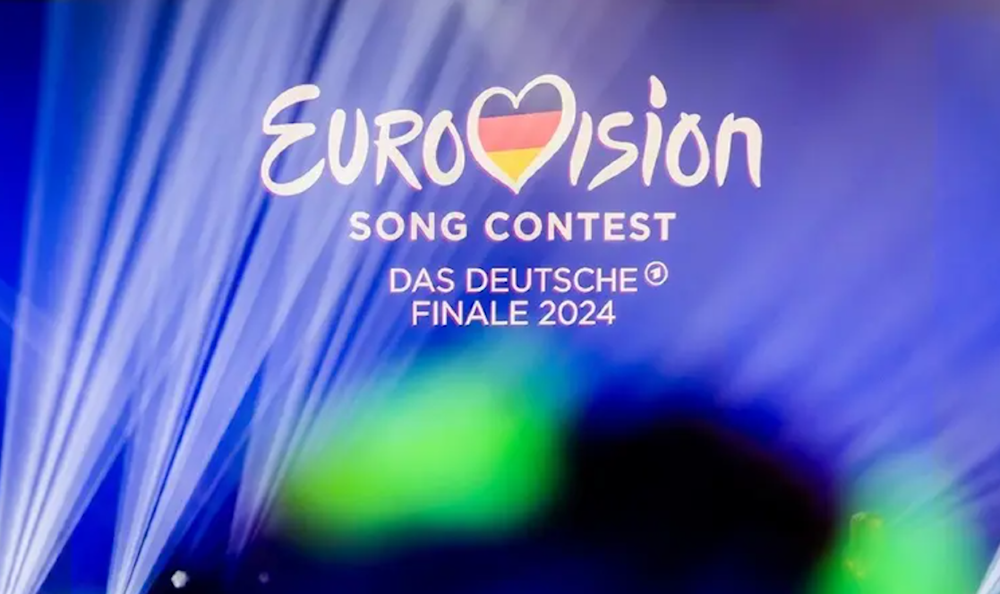'Israel’ threatens to withdraw from Eurovision if entry lyrics vetoed
Israeli singer Eden Golan and her song "October Rain", which references October 7, have been chosen to compete in the annual competition, which will take place in Malmo, Sweden, in May.
-

The logo for the German selection show for the 2024 Eurovision Song Contest is pictured on early February 17, 2024, in Berlin. (AFP)
"Israel" threatened to withdraw from this year's Eurovision Song Contest if the lyrics to its entry song were deemed "too political".
Israeli singer Eden Golan and her song "October Rain" have been chosen to compete in the annual competition, which will take place in Malmo, Sweden, in May.
Several days ago, reports stated that the song, which is largely in English with some Hebrew phrases, references the unfolding events of the Palestinian Resistance's operation on October 7.
That might imply it violates Eurovision regulations, which prohibit political remarks.
The European Broadcasting Union (EBU) stated merely that it was "currently in the process of scrutinising the lyrics" and that a final judgment had not yet been made.
"If a song is deemed unacceptable for any reason, broadcasters are then given the opportunity to submit a new song or new lyrics, as per the rules of the Contest," according to the statement.
The possibility of a ban has sparked an outcry among Israelis, knowing that the EBU earlier rejected requests for "Israel" to be excluded from competing due to the war on Gaza, which has killed 29,606 Palestinians in 142 days only.
Miki Zohar, "Israel's" culture and sports minister, described the idea as "scandalous," describing Golan's song as "moving" and as a mere expression of Israeli sentiment and not political.
The Israeli Kan channel announced on Thursday that it is "in dialogue" with the EBU over "Israel's" Eurovision participation.
"It should be noted that, as far as the Israel Broadcasting Corporation is concerned, there is no intention to replace the song," the channel wrote.
"Meaning, if it is not approved by the European Broadcasting Union, Israel will not be able to participate in the competition."
"Israel's" participation in Eurovision has frequently caused controversy.
Last month, Eurovision rejected demands to disqualify "Israel" from the competition, despite the death toll of its genocidal war exceeding 19,000 Palestinians at the time, the majority being women and children.
Icelandic musicians are urging their country to boycott Eurovision unless "Israel" is excluded. In response, the Eurovision Song Contest claimed that “the Eurovision Song Contest remains a non-political event that unites audiences worldwide through music.”

 3 Min Read
3 Min Read








